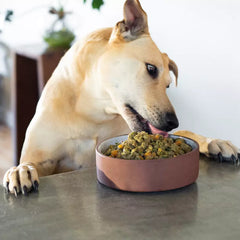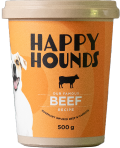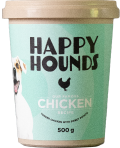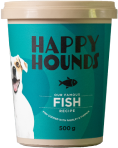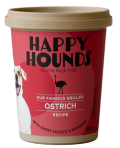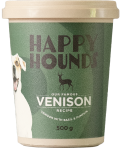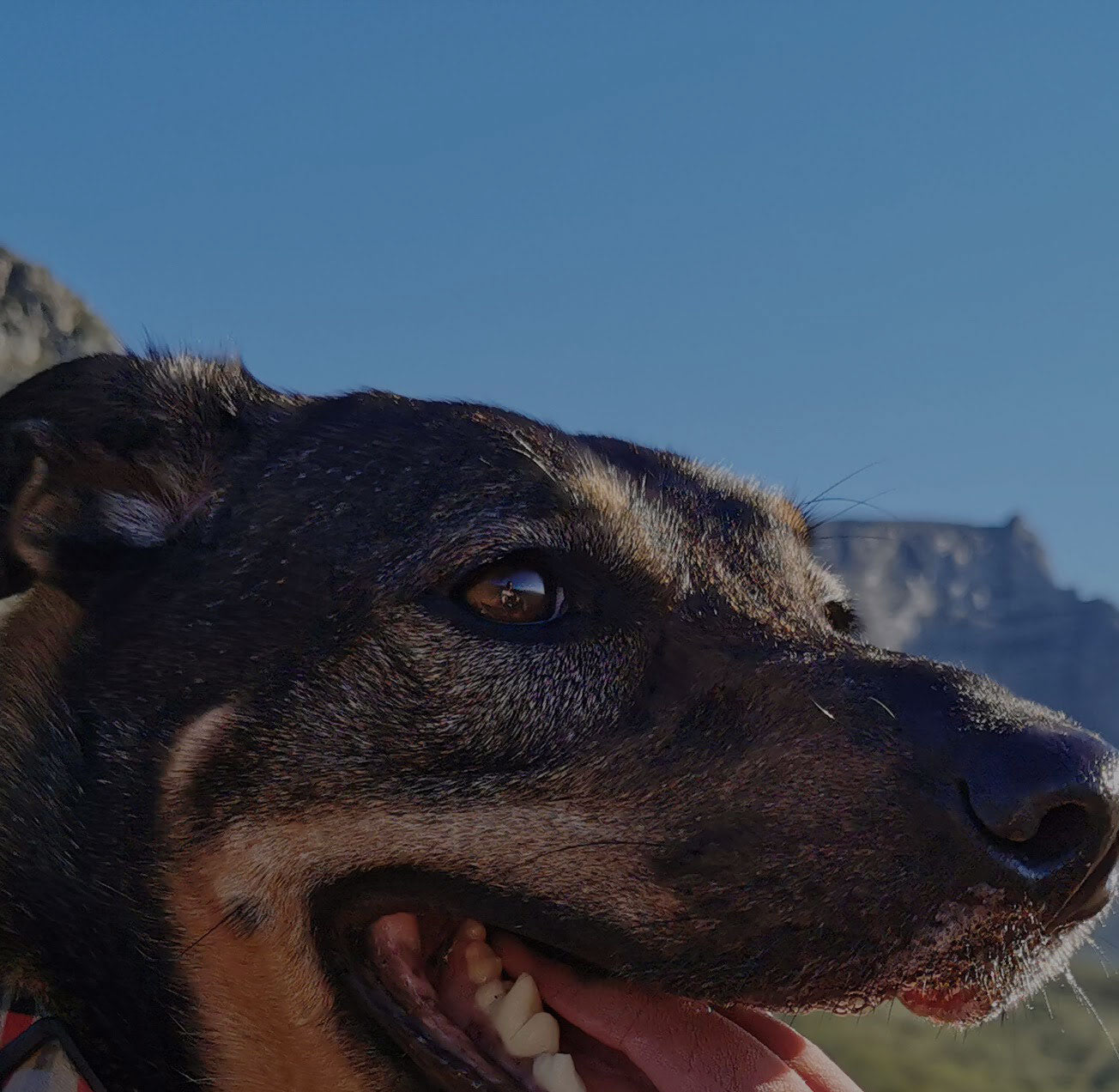Shop
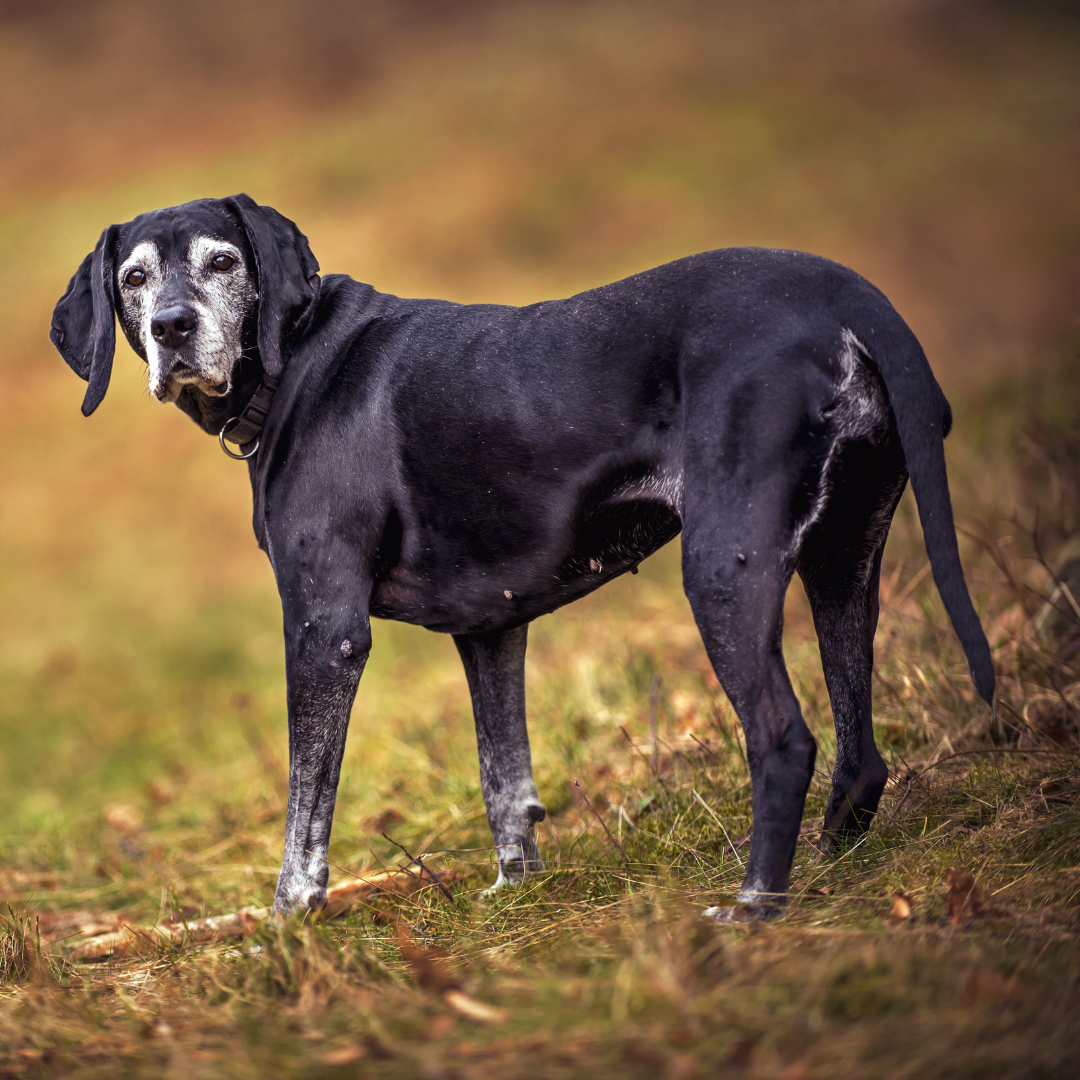
Caring for Senior Dogs: Food, Movement, and Love for a Long, Happy Life
July 09, 2025 3 min read
Caring for Senior Dogs: Food, Movement, and Love for a Long, Happy Life
Gray muzzles, knowing eyes, a wag that’s as strong as ever - there’s something incredibly special about senior dogs. These are the years of deep connection, of quiet joy, and for many dogs, continued vitality.

At Happy Hounds, we don’t see ageing as a decline. We see it as an invitation to fuel longevity through fresh food, daily movement, and meaningful love.
Let’s explore how to help your older dog not just age well - but live well.
WHEN IS A DOG CONSIDERED SENIOR?
While definitions vary by size and breed, most dogs are considered “senior” around:
- 7 years old for large breeds
- 8–10 years old for small to medium breeds
But here’s the thing - age is not a diagnosis. A well-nourished, well-loved dog can remain active and full of life well into their teens.
The signs that your dog is transitioning into their senior years might include:
- A little more stiffness in the mornings
- Slight changes in energy or recovery time
- More time spent observing than chasing
These are natural shifts, not red flags - and they’re your cue to adjust how you support your dog’s evolving needs, without dialling down their experience of life.
FRESH FOOD: THE FOUNDATION OF LONGEVITY
Dogs used to live longer. And many researchers now believe that the rise of ultra-processed pet food - kibble packed with low-quality ingredients and synthetic additives - has played a major role in reducing the average lifespan of our companions.
Feeding your senior dog a fresh, biologically appropriate diet can help unlock vitality that dry food simply can’t. Here’s why:
🥩 High-Quality Protein for Strength and Recovery
Ageing dogs still need protein - in fact, it’s vital to maintain muscle mass and keep joints supported. Fresh meat offers digestible, complete amino acids without the inflammatory fillers.
💧 Hydration Built In
Fresh food is naturally rich in moisture, helping support kidney function, digestion, and joint lubrication - especially important for older dogs who may drink less.
🌿 Fewer Nasties, More Bioavailability
Whole, unprocessed ingredients are absorbed more efficiently, meaning your dog gets the full nutritional value from every bite. And you won’t find artificial preservatives, rendered meat meals, or chemical colourants in a Happy Hounds bowl.
🐟 Anti-Inflammatory Support
Our fish and insect protein recipes offer omega-3 fatty acids that help reduce inflammation, soothe joints, and support brain health.
MOVEMENT: AGE ISN’T A LIMIT, IT’S A LIFESTYLE
A common myth is that senior dogs need to be “slowed down.” The truth? Movement is one of the best gifts you can give your older dog.
When fuelled by fresh food and given the opportunity to move every day, senior dogs can stay strong, playful, and adventurous.
Here’s how to keep them active, mobile, and happy:
✅ Daily walks - moderate, consistent walks support joint health, circulation, and mental clarity.
✅ Outdoor adventures - beach walks, forest trails, or gentle hikes offer natural stimulation that lights up the senses.
✅ Strength and balance play - think stepping over logs, slow hill climbs, or interactive fetch on soft ground.
✅ Playtime that adapts - tug, puzzle games, and hide-and-seek keep the mind and body engaged.
Just like us, dogs age best when they keep moving, keep playing, and keep connecting.
LOVE AND ROUTINE: THE INVISIBLE MEDICINE
Senior dogs often become more emotionally attuned and responsive. They’ve lived a life beside you - they know the rhythm of your days, and they take comfort in predictability.
Support their emotional wellbeing by:
💛 Creating a calm, loving environment
💛 Maintaining consistent routines for meals, walks, and rest
💛 Spending slow, intentional time with them - grooming, chatting, being present
They may not bounce like they used to, but they’re still very much alive to the love you offer.

KNOWING WHEN TO SEEK SUPPORT
While ageing isn’t an illness, it’s still important to monitor for changes. Speak to your vet if you notice:
- Unexplained weight gain or loss
- Sudden changes in appetite, thirst, or behaviour
- New lumps, bumps, or limping
- Confusion or disorientation
Regular wellness check-ups - ideally every 6–12 months - help you stay ahead of any issues and adjust care as your dog’s needs shift.
Your dog’s senior years don’t have to be about winding down - they can be an extraordinary chapter of vitality, bonding, and grace.
By feeding fresh, moving daily, and staying emotionally connected, you give your older dog the tools to thrive.
At Happy Hounds, we’re proud to walk with you through every season of your dog’s life - and we believe these golden years can shine the brightest of all.💛


